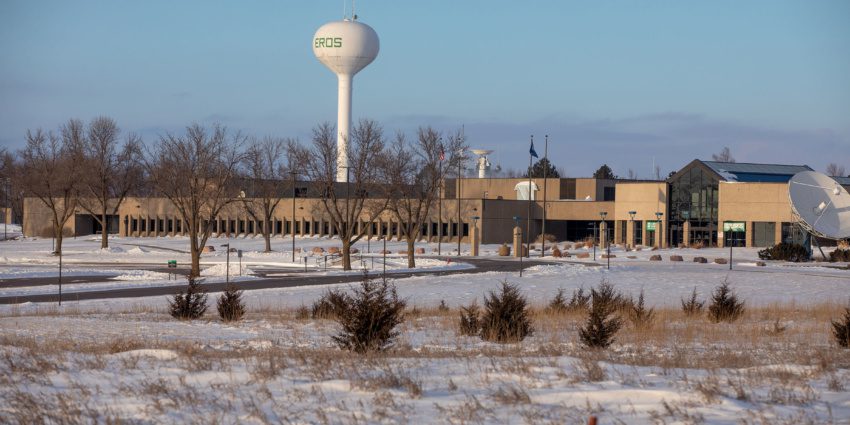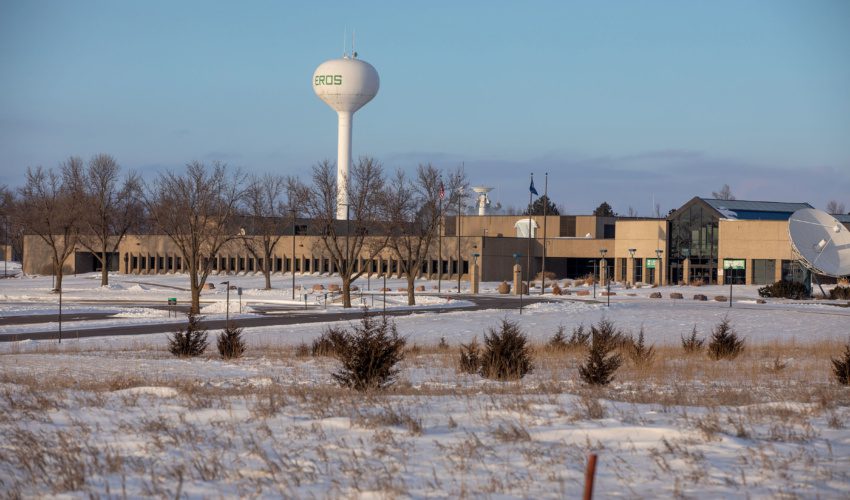Jodi’s Journal: Government shutdown creates hidden costs to business, human toll
Jan. 27, 2019
By the time Doug Jaton sat down to talk with me last week, it was clear the federal government contractor had had enough of the seemingly never-ending shutdown.
He and his team had partaken of the generous breakfast for workers at The Original Pancake House.
They’d had the half-price beer for furloughed workers at Monks House of Ale Repute.
He’d just come from an office bowling session at GreatLIFE Suburban Lanes.
But, more than 30 days into the shutdown, it had reached the point that all the goodwill out there couldn’t conceal the harsh reality that had started to hit.
This story needed to get out.
“We need some help,” he told me as we sat with leaders of the Sioux Falls Area Chamber of Commerce at a meeting arranged earlier in the day.
“It’s gone on too long. We’ve got real pain points now.”
Jaton works as a program manager for a company that serves as a contractor to the U.S. Geological Survey Earth Resources Observation and Science Center, or EROS.
The center near Garretson was a huge point of pride when our community came together to land it decades ago. It still should be one, even if many of us might not remember it as it sits just outside our commute routes and doesn’t look to make headlines.
But inside, about 600 people perform work with worldwide implications. I’m not about to try to explain it in detail, but it involves studying land change and producing related products. It includes NASA’s Landsat satellite program, the largest civilian collection of images of the Earth’s land surface and the largest data center in the U.S. Department of the Interior.
Seventy-seven percent of the workers at EROS are contracted employees. The rest are federal government employees. About 350 of them report up through Jaton.
“On day one (of the shutdown), I had to send 285 staff home,” he said.
The few remaining are assigned to work on what have been determined mission-essential services.
The ones who left were starting to struggle.
“They’re bleeding out their vacation if they have it,” he said.
The company offered workers the chance to go negative on their vacation time, 40 to 80 hours, as a way to continue to be paid.
If workers don’t have enough vacation to cover the time away, they are no longer getting paid. Some have started to file for unemployment.
“It’s really impacting the early career staff,” Jaton said. “They’re young, buying houses, having kids, and they’re not making as much, and they don’t have as much vacation. At that age, they’re living paycheck to paycheck.”
We should note that these are above-average paying jobs. The average salary for someone at EROS is $76,000 per year.
Jaton estimates not paying them amounts to $83,000 per day that is not circulating in the economy.
When the shutdown started, the federal government assured its 800,000 impacted federal workers that they eventually would be paid. There is no such guarantee for these contracted workers — a number tough to nail down but by most estimates is anywhere from hundreds of thousands to millions of people.
Thanks to Friday’s announcement of a reopening, they will be able to head back to work — at least for a few weeks.
The contractor will have to request payment for the time away, and historically, contractors have been reimbursed following shutdowns. But no one knows what to expect this time.
“Ultimately, that’s going to come out of local economics if we don’t get paid back,” Jaton said.
“We’ve had two resignations, and we expect it to get much worse the longer we go without certainty about getting back pay.”
This is frustrating and sad on multiple levels. First, these are highly skilled, specialized jobs. They aren’t easy to fill. They also attract the sort of talent we claim to be seeking in this community. And if those people leave EROS, in many cases they are not going to be able to find equivalent work in this area and will be forced to look elsewhere.
“I know they’re out looking,” Jaton said. “We’ve been having people sitting around two weeks, and they’re probably updating their resumes looking for plan B. We don’t want them to do that. They’re all hanging in here as best they can, but they have questions, and they can’t answer them.”
Jaton has met multiple times with representatives at both U.S. Senate offices.
“They’re hearing us. They understand the pain. They’ve been responsive in letting us come talk, and I think the numbers are eye-opening,” he said.
“These are real people, real numbers of people, and there’s a real impact and a risk we’re going to lose this talent.”
He is hopeful that Congress will at least offer some certainty that contracted workers will be paid once the government reopens, but there’s been no sign of movement in that direction yet.
“We’re highly supportive of those efforts,” said Jason Ball, president of the Sioux Falls Area Chamber of Commerce.
The chamber signed onto a letter sent to the president and members of Congress from its national organization urging the government to reopen.
“Furthermore, we remain concerned about the disruptions to normal business operations that have occurred. This includes impacts to industries ranging from value-added food production to home lending and manufacturing,” the Sioux Falls chamber said in a statement. “Even business purchases of other business operations have been delayed in some cases. The Sioux Falls economy is strong and resilient; however, it is unlikely to remain immune to these impacts indefinitely.”
We saw a clear example of that last week as Sioux Falls Fire Rescue, Hy-Vee stores and the Denny Sanford Premier Center launched a donation drive for food, paper products and personal care items to be offered to furloughed workers.
You can drop off donations at any fire station, Hy-Vee or at the Arena, and furloughed workers can pick up items from 10 a.m. to 1 p.m. Feb. 2.
“That illustrates how the cost of this radiates out in ways I don’t think anyone expected at the beginning of the shutdown, and it’s going to continue to manifest in ways that are difficult to predict going forward,” Ball said.
I could write a long time on how disturbing and unnecessary this is. The situation at EROS is one example. I’ve also talked with people whose small businesses are waiting for SBA loans. I’ve talked to people waiting on HUD authorization. I’ve talked to people waiting on the FCC to complete a deal. I’m sure that’s just a sampling of those effected.
And I really sympathize with Jaton and other managers like him. How awful it must be to be a leader with so little control over what’s happening to your organization.
It’s a powerful reminder that the actions — or inaction — of elected officials have real, personal, lasting consequences far beyond the chambers where they debate and deliberate. I wish that came through as loud as the rhetoric. They’ve now got three weeks to figure out a deal. Let’s hope they don’t forget the real people and communities at risk if they fail again.









